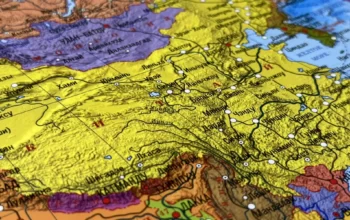Thirty years after the collapse of the former Yugoslavia, “Yugonostalgia” is growing in the Balkans, writes The Guardian. It is a yearning for a socialist past and times that people associate with economic stability and higher living standards. Since independence, differences between Bosnia and Serbia have intensified, while Croatia and Slovenia have joined the European Union. However, the accession process for the other former Yugoslav countries has stalled and many now doubt they will ever join, The Guardian notes.
In Serbia, 81% of those polled believe that the break-up of Yugoslavia was a mistake. In Bosnia, which has always been the most multicultural of the republics, 77% share this view. Even in Slovenia, the first former Yugoslav republic to join the EU and regarded by many as the most successful country in the region, 45% of people believe so. And only in Kosovo, which did not gain full independence from Yugoslavia, only 10% of those surveyed regret the break-up, writes The Guardian.
The results of the opinion polls show a striking unity of opinion among residents of the countries that were part of the Republic of Yugoslavia. Many inhabitants of the Balkans – not only the elderly, but also very young – have a desire to return to the second half of the 20th century, to Yugoslavia. A common narrative at the time was that for almost half a century, Tito forced different peoples to live together against their will. Yet 30 years on, many still have a deep attachment to a country that no longer exists and regret its disintegration, The Guardian reports.
This nostalgia is particularly easy to feel in May, when on Josip Broz Tito’s birthday many people with Yugoslav flags and flowers come to his mausoleum. Most of them grew up under the old system, when the dictator’s birthday was the main public holiday. Some belong to extreme left-wing political parties. But there are also teenagers among them who regret that they did not get to be pioneers. Among them was 18-year-old Miloš Tomčić, who came to Tito’s mausoleum wearing a pioneer tie. Asked about his ethnicity, he replied: “I consider myself a Yugoslav: my mother is Serbian, my father is Montenegrin and my grandmother is Croatian. My relatives live all over Yugoslavia,” the publication writes.
The Socialist Federal Republic of Yugoslavia was established in 1945 and consisted of six republics: Serbia, Croatia, Bosnia and Herzegovina, Slovenia, Montenegro and northern Macedonia, as well as the autonomous province of Kosovo. Tito’s government sought to unite the different ethnic and religious groups under the slogans of equality and fraternity, but after his death in 1980, nationalist sentiment intensified in the region, which in 1992 led to the break-up of the country, and then to bloody military conflicts, says The Guardian.
The longing for the days of Tito in the countries of the former Yugoslavia is called “Yugonostalgia”. According to Sarajevo-based political scientist Larisa Kutovic, the socialist period is highly regarded and associated with economic growth and a significant improvement in living standards. Most of the former Yugoslav states experienced a severe economic downturn after independence and still suffer from low living standards. Divisions between Bosnia and Serbia have worsened again. Croatia and Slovenia have joined the EU, but the accession process for other former Yugoslav countries has stalled and many now doubt they will ever become members at all, The Guardian notes.
Although Yugoslavia was a one-party state, it was clearly different from other countries in the bloc. Tito was one of the founders of the Non-Aligned Movement and maintained balanced relations with the West and the USSR, and Yugoslav citizens could move easily around the world.
One of the reasons for “Yugoslav nostalgia” is seen by sociologists as a loss of status: former residents of a large and important country by world standards became citizens of small, insignificant states, The Guardian concludes.
404 total views, 2 views today



